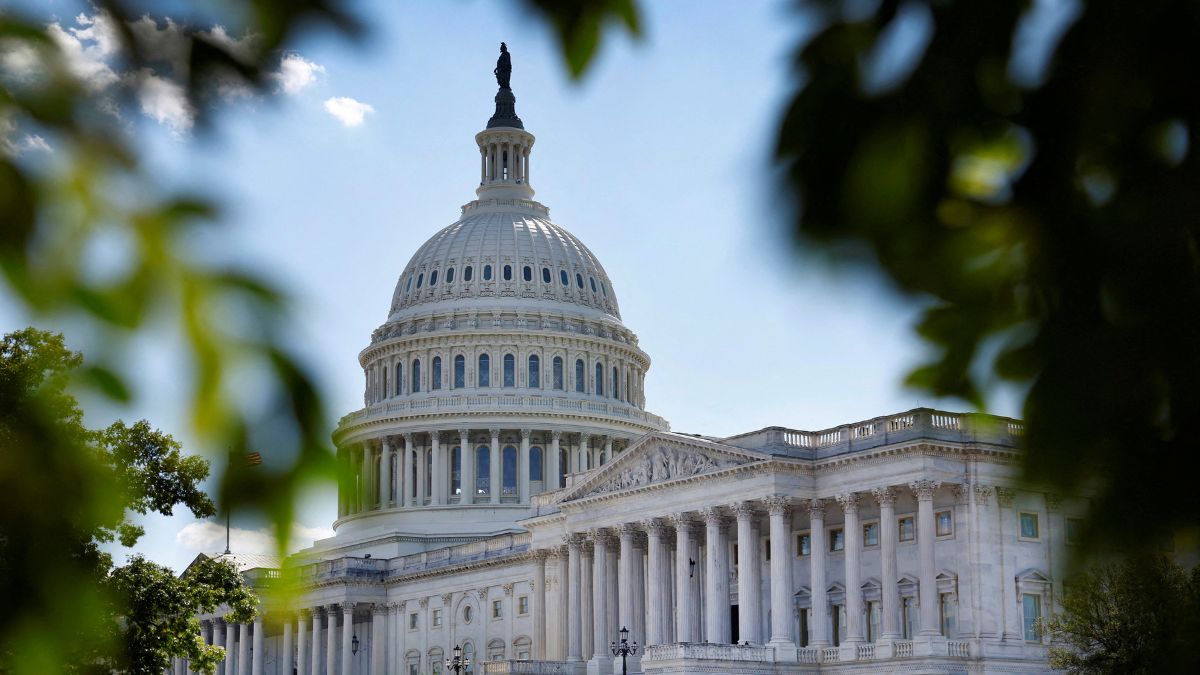The recent inauguration of United States President Donald Trump has set the stage for a sweeping overhaul of US immigration policy, with the Laken Riley Act emerging as a central piece of legislation.
The Laken Riley Act was named after Laken Riley, a 22-year-old nursing student from Georgia who was murdered in 2024 by Jose Ibarra, a Venezuelan immigrant in the US unlawfully.
Riley’s death became a focal point of then-presidential candidate Donald Trump’s campaign, as he called for stricter immigration policies to prevent such incidents. Ibarra, who had previously been detained by Border Patrol and later released, was convicted and sentenced to life imprisonment.
The case highlighted gaps in immigration enforcement, prompting lawmakers to draft the legislation in Riley’s name. The bill seeks to mandate the detention of immigrants accused of crimes and grants states increased power to influence federal immigration decisions.
What is the Laken Riley Act?
The Laken Riley Act is a proposed federal law that mandates the detention of undocumented immigrants accused of theft or violent crimes. It grants significant powers to state attorneys general, enabling them to challenge federal immigration decisions and even sue the federal government to enforce stricter detention measures.
Notably, it also allows states to demand visa bans for countries that fail to accept deported nationals, a provision that could impact nations like India, China, and others.
Under the bill, federal immigration authorities would be required to detain individuals accused of theft involving $100 or more, regardless of their immigration status. Critics argue that this could divert resources from addressing violent criminals, as current practices prioritise the detention of individuals with significant criminal records.
Jason Houser, former chief of staff for Immigration and Customs Enforcement (ICE), warned that the law could strain resources. “If passed, you will see fewer individuals in detention who are violent convicted criminals than you see today,” he said, highlighting concerns over the bill’s operational impact.
What does that mean vis à vis visa bans?
One of the most controversial aspects of the bill is its provision allowing state attorneys general to influence US foreign policy. If a country refuses to accept deportees, states could demand that the federal government suspend visa issuance for nationals of that country.
This could significantly impact nations like India, which has a substantial number of undocumented immigrants in the US.
According to Pew Research, approximately 725,000 undocumented Indians reside in the United States. While India has cooperated with past deportations, experts warn that strained diplomatic relations or logistical hurdles could complicate compliance, potentially leading to visa restrictions.
Miriam Feldblum, co-founder of the Presidents’ Alliance on Higher Education and Immigration, expressed concerns about the bill’s broad implications for international students and professionals. “Those individuals who are coming in legally through established processes should not be harmed,” she told Inside Higher Ed, highlighting the need to balance immigration enforcement with the recruitment of global talent.
Why has the bill received bipartisan support?
Despite its polarising nature, the Laken Riley Act has garnered bipartisan support in Congress. The House passed the bill with backing from 216 Republicans and 48 Democrats, while the Senate advanced it with votes from 31 Democrats alongside their Republican counterparts.
Senators like John Fetterman and Ruben Gallego have co-sponsored the legislation, arguing that border security and humane immigration policies are not mutually exclusive. “A secure border” and support for immigration are fully compatible, Fetterman said. However, critics, including Senator Patty Murray, warn of the bill’s financial and humanitarian costs.
“That’s a lot of money to spend on a bill that will cause chaos, punish legal immigrants, and undermine due process in America,” Murray said, referencing estimates that the legislation would cost $83 billion over three years.
The bill’s implementation would require a significant expansion of detention facilities and deportation flights, raising concerns about resource allocation and feasibility.
How the Act could impact India
India, which has historically been a vital source of international students and skilled professionals for the US, could face significant challenges if the bill’s provisions are enacted. Universities and industries reliant on talent from India and other nations could suffer if visa bans disrupt established pathways for legal immigration.
The Migration Policy Institute has noted that deportations require cooperation from the immigrant’s home country, including confirmation of nationality and acceptance of returnees.
Countries designated as “recalcitrant” by the US government, including India, China, and Russia, could face diplomatic and economic consequences if they fail to comply.
With inputs from agencies
)